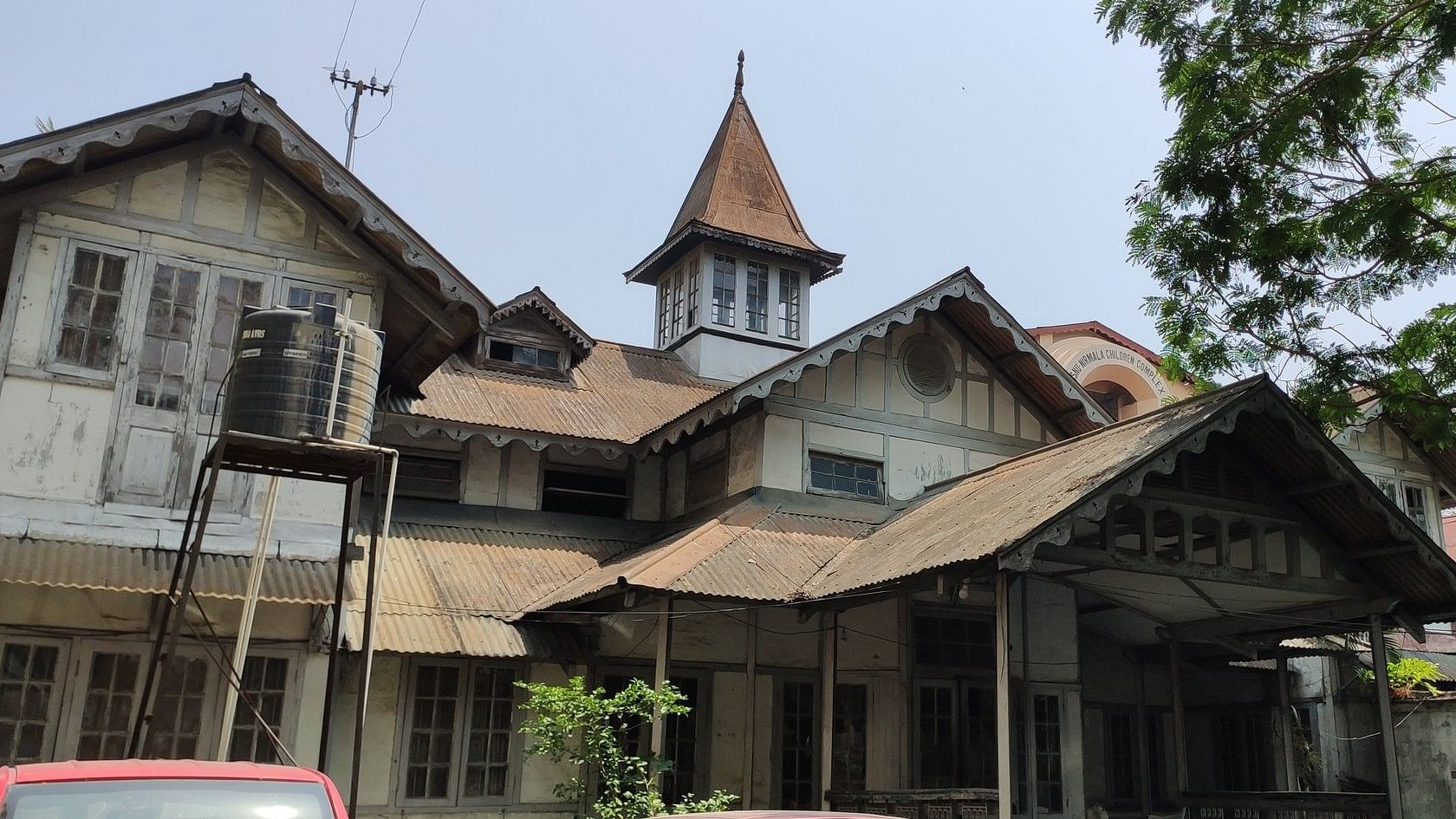
The Barua house in Guwahati.
Credit: X/@dishanta_24
Guwahati: From music to films to sports to politics -- it is a tale of a rare family and its over 100-year-old residence that the national award-winning filmmaker Utpal Borpujari has tried to capture in his latest documentary Baruar Songsaar or The House of Baruas.
Produced by Nayan Prasad, Jemini Phukan and Dibyajyoti Saharia, and Directed by Borpujari, this 71-minute film was premiered for select audience at Rudra Baruah auditorium of Jyoti Chitraban Film Studio in Guwahati on Saturday evening, followed by a ticketed show at the same venue.
The film is on an iconic Assam-type house, which completed a century in 2023, in the heart of Guwahati at Latasil that no residence of the city or any visitor to that area can miss.
It is also located in a strategically very important area adjacent to Gauhati High Court, planetarium and Latasil playground on the bank of Brahmaputra in Uzan Bazar.
The structure has been the home to legends like Ramen Barua (musician), Dwipen Barua (cricketer, singer), late Brajen Barua (filmmaker, actor, musician, singer), Nip Barua (filmmaker, footballer, artist), Dibon Barua (filmmaker), Girin Barua (entrepreneur, sports organizer, politician), Niren Barua (actor, radio personality) and several others.
"We all grew up seeing this house and wondering about its residents during our childhood. In fact, we became adults listening to the romantic songs of Dwipen Barua and others composed by their brothers. This is a rare family, perhaps in entire India, giving birth to so many talents under one single roof," Borpujari told PTI.
Constructed by engineer Chandranath Barua of Bihdiya village near Baihata Chariali in Kamrup district in 1923, the house of Baruas was built with a mix of materials imported from the UK as well as sourced locally.
Out of the 13 siblings, only Ramen Barua and Dwipen Barua are alive now. The producers plan to donate a part of the proceedings coming from the screenings across the state to the legendary brothers.
"That will be the least we can do to show our love, respect and gratitude to them for their contribution to Assamese society. I hope the government will also consider the two living legends for the state and central civilian awards. There are very few deserving people other than Ramen Da and Dwipen Da for these honours," Borpujari said.
'Baruar Songsaar' was screened at the Indian Panorama of the 54th International Film Festival of India (IFFI) in November last year. The makers are now planning screenings of the documentary all over Assam.
"The film will be screened in ticketed shows in collaboration with like-minded organisations so that people at large, specially the present generation, get to know about the immense contribution made by the Barua family towards Assamese cinema, music, culture, sports and society over the years," he said.
Watching the film with their admirers and fraternity colleagues, both Ramen Barua and Dwipen Barua expressed their happiness and applauded the makers of 'The House of Baruas'.
"Our entire family is very happy that this documentary has chronicled our story when the house has completed its centenary," said Ramen Barua.
Reacting to the documentary, Dwipen Barua said: "The film will take the story of our family to people not only within Assam but to other parts of the country. That is a matter of great satisfaction for all of us," said Dwipen Barua.
Starting with 'Smritir Parash' (1955) directed by Nip Barua, members of the family have given 30 feature films in Assamese, Bengali and Hindi. Some of the prominent flicks include 'Ronga Police', 'Dr Bezbarua', 'Lalita', 'Mukuta', 'Ajoli Nabow', 'Kokadeuta Nati Aru Hati', 'Shakuntala Aru Shankar Joseph Ali', 'Jog Biyog', 'Toramai' and 'Ajala Kokai'.
In the sporting arena, Girin Barua shone as a cricketer and represented Assam in the Ranji Trophy for 15 years, including as captain, while Dwipen Barua played in the Ranji Trophy and even captained the junior East Zone Team before the songs of 'Dr Bezbarua' made him an overnight sensation in 1969, leading to a shift to a singing career.
On the other hand, Nip Barua played football and captained Assam in the Santosh Trophy even while making films.